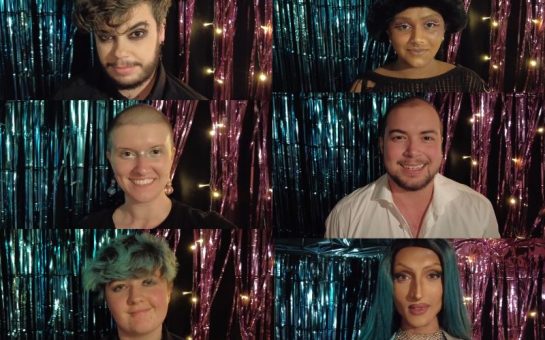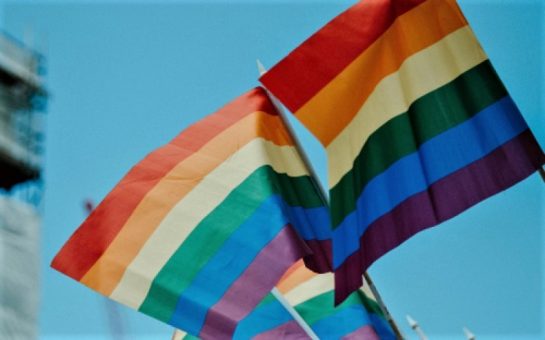Anna Mackenzie
January 16 2020, 15.00
Follow @SW_Londoner
The past few years have seen a surge in racially-motivated hate crimes across the UK that have been attributed to an increasingly divided political landscape.
But at a local level, community organisations such as Multicultural Richmond are rallying together to challenge prejudice and promote social inclusion.
Originally founded in 1992 as the Ethnic Minorities Advocacy Group, the charity works to secure racial equality and inclusion and runs several events such as the Minority Ethnic Elders Group (MEEG).
Director Ravi Arora said: “Groups like this give people a sense of belonging, and it gives them confidence. We’re like an extended family.
“The purpose is to help people become part of the wider community. It’s not only for a particular group, it’s for the whole. Everyone is welcome.”
The bi-weekly group aims to reduce isolation and loneliness in the elderly community by offering a space to socialise, get some exercise and enjoy a delicious meal together.
Project leader Surinder Sembi said: “We want to help people get into the mainstream, and overcome any barriers they have so that their life here is a lot more enjoyable.
“I think it’s really important for the older group who have done their bit and raised their families – this is a time when they should be able to do what they want and be happy and well and fit.”
For guests who may struggle with language barriers and feelings of cultural exclusion on top of social isolation, the meetings are a way to spend time with people from all backgrounds who can relate to their experiences.
“A reason to get out of the house”
I visited the group and spoke with several of its members to find out what makes it so special.
We begin the morning with cups of tea and coffee, followed by activities such as light aerobics, meditation and games, before sharing a freshly prepared vegetarian Indian curry for lunch.
Before joining in with the exercise class, Sam Bell, 82, tells me it is the social aspect of the group that makes it so enjoyable.
Mr Bell moved from Mumbai to the UK in his 20s and has lived in Twickenham ever since. He has been attending MEEG for over 10 years.
He said: “We have a reason to get out of the house. We’re going somewhere, we’re going to do something. It’s great fun.”
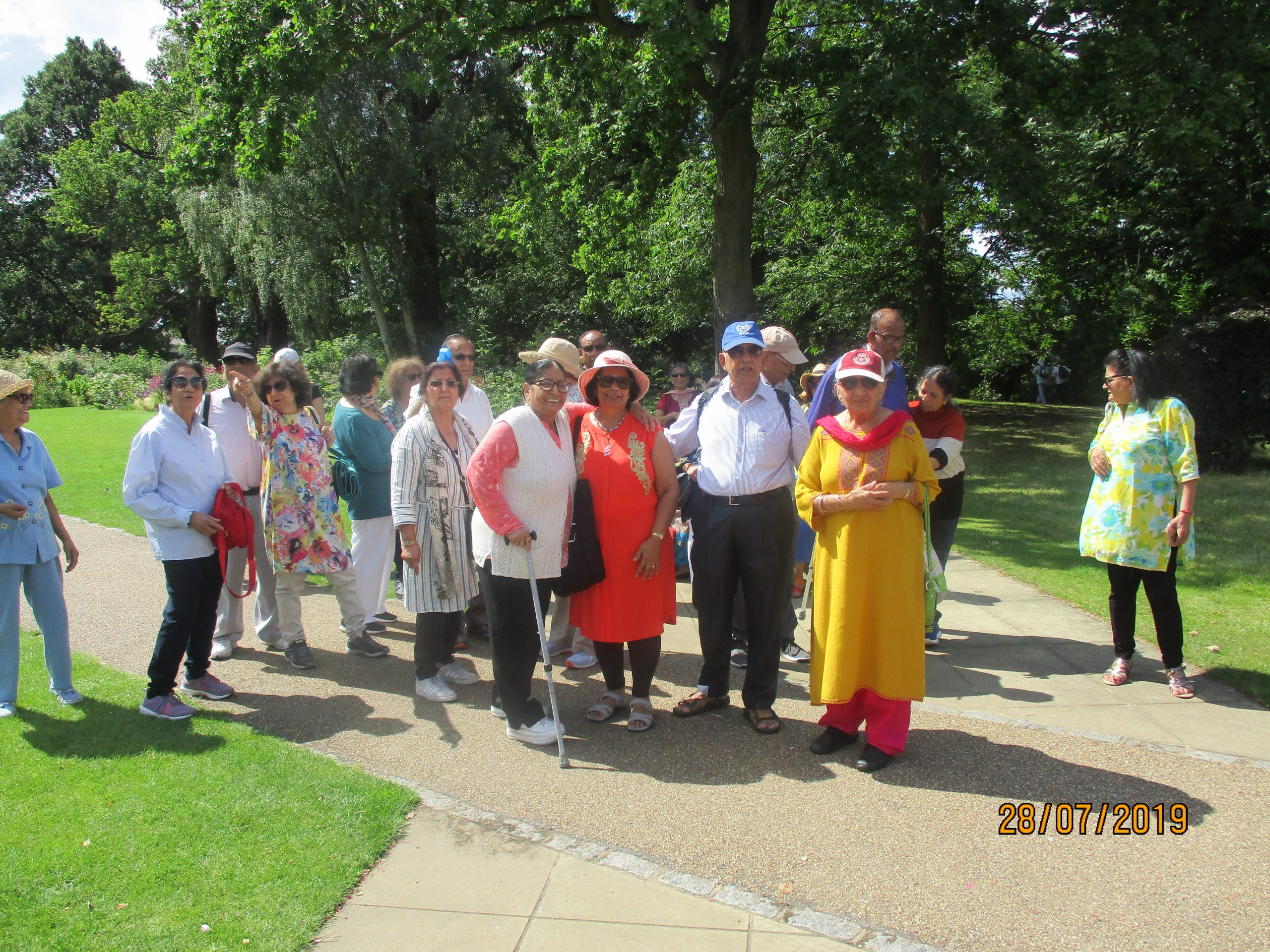
Lucy, 72, is originally from Egypt and has being attending the group for six years.
She said: “I come for the exercise. Without it, I would have been in a wheelchair.
“It’s so good for your morale and your body. Exercise can give a bit of relief for people who are suffering from illness, physically and mentally.”
Lucy lives alone and has suffered with feelings of isolation and depression due to health issues and reduced mobility.
She said: “As soon as I come here, I forget everything and get on with it, which is beautiful.”
Combatting hate crime
Multicultural Richmond works with local services such as the borough council, police and Citizens Advice Richmond to represent the voices of people from ethnic minority backgrounds.
Mr Arora said while there has been a massive improvement over the years in terms of social inclusion, a recent increase in hate crime presents a worrying trend.
He said: “It’s not obvious and it doesn’t happen all the time, but it does exist. We need to be aware that it is there and keep an eye on it.”
“An issue that hasn’t gone away”
Mike Ainsworth, director of London services for charity Stop Hate UK, echoed this sentiment and said something quite startling has been happening since the EU referendum.
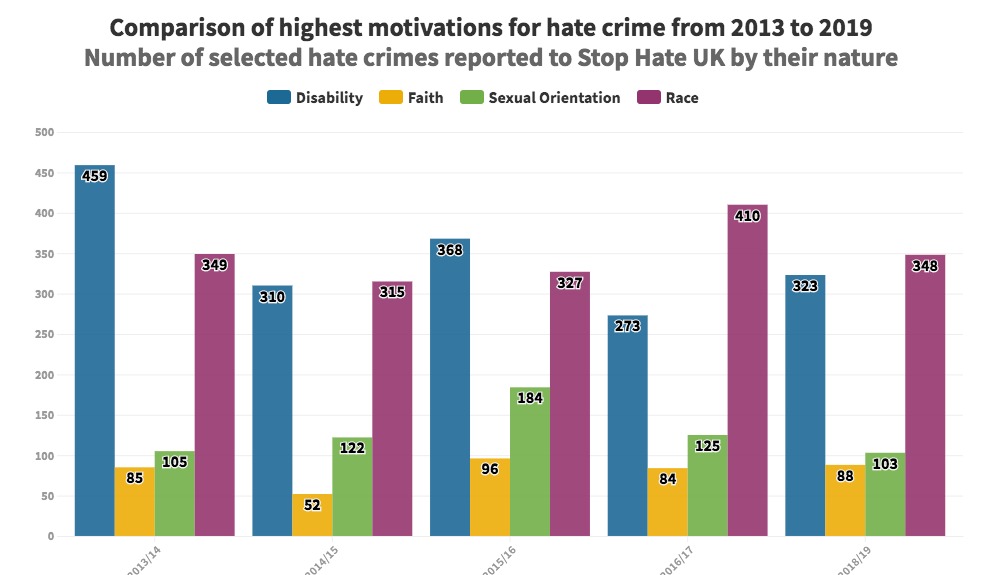
He said this was reflected in the number of incidents reported across south west London and particularly Richmond, with a surge in people who said they had never experienced any form of hatred in their lives now reporting race hate crimes.
He said: “This is an issue that hasn’t gone away.
“It has perhaps laid dormant, and maybe the EU referendum awoke some of that prejudice, but people are still experiencing it.”
Stop Hate UK’s annual report showed race was the highest motivation for incidents of hate crime reported to them for the third year running, making up 30% of all reports in 2018-19.
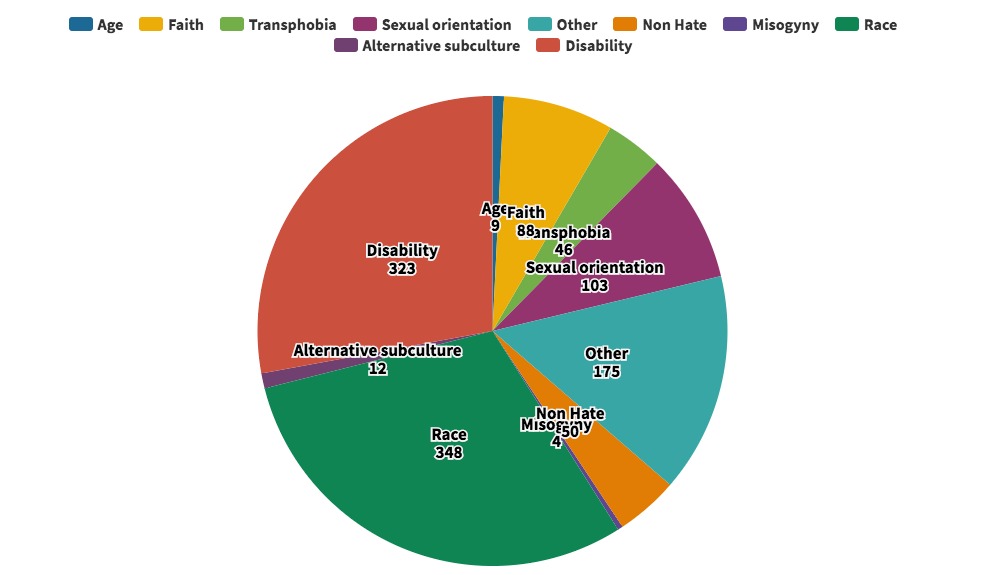
Number of hate crimes reported to Stop Hate UK based on their nature
Data: Stop Hate UK
Mr Ainsworth said while only an estimated one in two cases were reported to the police, this posed a marked increase from one in six in the late 1990s – pointing to greater community confidence in support services and hope for changing tides.
Positive steps
I left the group feeling uplifted and welcomed; with a full belly, new friends and an invitation to visit the local Gurdwara.
For those visiting MEEG regularly, the atmosphere of inclusivity makes all the difference and is one that has perhaps not always felt so prevalent.
Born in Goa, Ana Ferrao, 78, grew up in Kenya and came to London in 1975 with her family. She noted a remarkable difference in social inclusion between then and now.
She said: “It wasn’t like this before. It was hard to get into this country.”
She spoke animatedly about how the positive impact the group had made on her life and the friendships she has made there with people from all denominations.
She added: “I’m thankful to come here.”
Find out more about Multicultural Richmond at www.multiculturalrichmond.org.uk. Featured image courtesy of Multicultural Richmond.
Images courtesy of Multicultural Richmond
